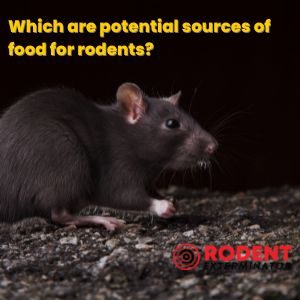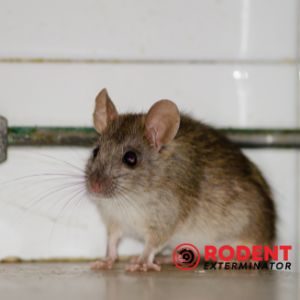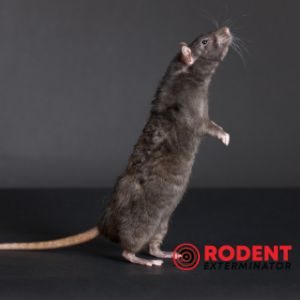Rodents are always on the lookout for their next meal. They can be found in many different places, and they will eat just about anything.
This makes them a potential threat to our food supply, as they can contaminate food with their droppings or urine.
Rats and mice are a common sight in homes, warehouses, supermarkets, and even our gardens. These rodents are not just a nuisance; they can be dangerous to the food supply.
There are many potential sources of food for rodents. Rodents are omnivores, which means they eat everything, plants, animals, insects and other plants. They can even eat each other when they’re feeling peckish!
Let’s explore some of the more common sources of food that rodents might be attracted to in your home or office.
What are the most common sources of food for rodents?
Rats and mice are omnivores, meaning they will consume almost everything. Insects, other small animals, and even plants fall within this category.
Here are some of the most popular food sources in your home or office that rodents may be drawn to:
- Food is poorly sealed containers, such as bags of chips, rice, cereal, crackers, flour, and other non-perishable items.
- Animal feed and water are left out or in a bag instead of in a secure container.
- Fruits and vegetables are left out of the refrigerator in open containers.
- Leaky pipes or faucets throughout the house.
- Trash cans and open compost containers that are open.
- Uneaten fruit rots on bushes or trees or is left in open trash cans
- Dog food and water.
- Sweet and salty leftovers.
What do most rodents eat?
Many rodents, such as mice and rats, have a diverse diet and can adapt to a variety of situations. So, they eat whatever they find.
The food that rats and mice usually eat is:
-
Plants:
Beavers only eat plants, hence their diet is entirely plant-based.
Grass, twigs, bark, and whatever trees are available are their main sources of food.
Plants are also consumed regularly by rats and mice. Grass, grains, and little twigs are among their favorite foods.
Young fir cones are eaten by porcupines, and cones and bark are eaten by squirrels. Seeds from plants are also consumed by rats.
-
Seeds and grains:
Grains and seeds, whether kept for later use or still attached to a plant, are one of the most natural diets for rats and mice.
Mice and rats are drawn to grain storage bins and agricultural fields in agricultural settings before harvest.
In a more suburban situation, they can look for yummy seeds in your cupboard, such as oats.
-
Meat:
Meat-eating rats exist. Rats are particularly fond of meat and fish. Rats have the ability to digest decaying meat and will eat scraps from human garbage.
They will also eat roadkill and carcasses abandoned by other animals. Rats are opportunistic feeders who will devour any meat that comes their way.
For the most part, this meat is salvaged where they can find discarded food, such as dumpsters, garbage cans, or carcasses from roadkill.
-
Garbage and rubbish:
Regardless of what humans throw away, rats and mice find a gold mine in much of it.
Foods of all kinds, especially bread, cheese, meat, fruits, and vegetables, are prime prey for rodent trash diving.
-
Pet food:
If it’s good enough for your dog or cat, it’s good enough for your neighborhood’s rats and mice. They won’t be confined to dog and cat food, though.
Mice and rats will eat anything that nourishes another animal, such as grains, seeds, hay, fish food, and so on.
Rats and mice not only seek to chew on food but also cables and wires.
What food is irresistible to rats and mice?
Most people know that rodents are attracted to food, but they may not know what types of food are the most irresistible to rats and mice.
Here is a list of some of the most common foods that these rodents find irresistible:
- Peanut butter.
- Bacon.
- Chocolates and candies.
- Dried fruit and berries.
- Nuts of all varieties.
- Unflavored dental floss.
What foods are toxic to rats and mice?
While rats and mice will eat just about anything, there are some foods that are toxic to them. Some of the most common foods that are poisonous to rats and mice include:
- Caffeine.
- Dried corn.
- Licorice.
- Raw sweet potato.
- Raw Brussel sprouts.
- Raw peanuts.
- Rhubarb.
- Blue cheese.
- Poppy seeds.
- Raw cabbage.
- Avocado skin and pit.
- Chocolate.
- Green potato.
- Green bananas.
Some foods are potentially dangerous for these rodents and cause kidney damage:
- Citrus fruits.
- Mango.
- Uncooked/dried beans.
How do you stop rats and mice from eating your food?
There are a few things you can do to try and stop rats from eating your food:
1. Make sure you keep your food stored in airtight containers.
Food is frequently safer in its original, sealed packaging until it is opened.
Because most foods are sealed in plastic, rats and mice will not be able to smell them until the seal is destroyed.
It’s a good idea to inspect each shopping item when you get home to be sure the packaging isn’t tampered with.
2. Try to keep your kitchen clean and free of crumbs and scraps.
Rodents are resourceful animals. They will find food on your land, so you must be vigilant in your dealings with them.
Constantly clean the floor, cabinets, countertops, tables, refrigerator to avoid attracting rodents with food scraps.
3. Food should not be stored on the floor.
Food should be kept off the floor at all times. Avoid the bottom shelf of any cupboard that is directly on the floor.
While this is a standard storage method for potatoes and other large-packed commodities, it allows hungry rodents free access.
4. The trash should be sealed.
Rodents are more likely to come indoors if they are attracted outside.
Make sure the bags are secured and the trash can closes as tightly as possible when you bring your trash outdoors to your trash can.
5. Call a professional exterminator.
The most efficient way to get rid of them is to hire expert rat exterminators.
Rodents can be harmful, so don’t take any chances when dealing with them. Working with an expert will give far better results than dealing with an infestation alone.
You can hire pest control and extermination professionals to get rid of rodents safely and swiftly if you have a rodent problem.
Rodent Exterminator can provide you with the best professionals and specialized services. After we finish our operation, we promise that your home will be rodent-free. Please contact us at 213-431-0890.
In conclusion, it is important to know the sources of food that we can provide, by accident, to rats and mice.
In this way, you can avoid attracting these animals by not constantly cleaning the kitchen, leaving food residues around the countertops or on the floor, leaving food unpackaged, among others.
You must take into account that it is very dangerous for rats and mice to consume your food since they transmit diseases that can be lethal through their saliva, droppings, or urine.
